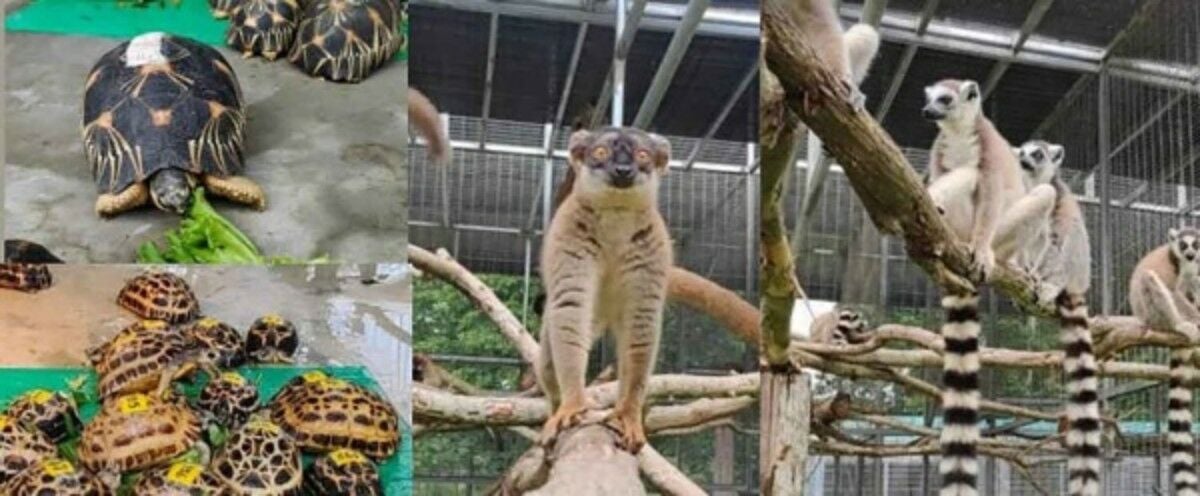Thailand to repatriate 900 seized lemurs and turtles to Madagascar

Thailand is set to return over 900 lemurs and rare turtles to Madagascar, following a significant seizure from the illegal wildlife trade, as stated by the Department of National Parks, Wildlife and Plant Conservation (DNP).
The DNP announced that 963 animals, including ring-tailed lemurs, brown lemurs, spider tortoises, and radiated tortoises, are currently under the care of officials. These animals were confiscated from a wildlife smuggler in Chumphon in May, DNP chief Attapol Charoenchansa said yesterday, November 18.
“This is a form of international collaboration to protect and preserve threatened animal species. It also demonstrates our commitment to fighting crimes against wildlife.”
The operation to seize these animals occurred on May 1, prompted by a tip-off received by the Natural Resources and Environmental Crime Division. The informant alerted the police about a smuggling attempt from Indonesia to Satun in southern Thailand.
Police set up checkpoints along key roads in the province, scrutinising vehicles for illicit cargo. The crackdown resulted in the interception of four vehicles, which contained a staggering 1,117 live and dead animals. Six individuals were subsequently detained by the police.
The DNP has highlighted that the animals, which were confiscated in Chumphon, are native to Madagascar. Many of these species are considered near-extinct or threatened, as classified under Annex I of the Convention on International Trade in Endangered Species (CITES).
Attapol disclosed that Madagascar will play an active role in the repatriation process, with Max Andonirina Fontaine, Madagascar’s Minister of Environment and Sustainable Development, expected to oversee the proceedings. The repatriation will commence with a send-off ceremony at the Ministry of Natural Resources and Environment.
The return of the animals will be executed in stages via three flights. Departures are scheduled on November 28, November 30, and December 2, with Qatar Airways handling the transport. Fontaine is set to accompany the first batch of wildlife back to Madagascar.
Radiated tortoises, spider tortoises, brown lemurs, and ring-tailed lemurs are among the animals earmarked for return to Madagascar by the end of this month. The initiative marks a significant step in international efforts to combat wildlife trafficking and preserve endangered species, reported Bangkok Post.
Frequently Asked Questions
Here are some common questions asked about this news.
Why is international collaboration crucial in combating wildlife trafficking?
It enhances resource sharing and strengthens enforcement across borders, increasing the success rate of intercepting and preventing wildlife crimes.
How do wildlife trafficking operations impact global biodiversity?
They threaten the survival of species, disrupt ecosystems, and contribute to biodiversity loss, which can have cascading effects on global ecological balance.
What if more countries adopted Thailand’s approach to wildlife repatriation?
It could lead to a significant reduction in wildlife trafficking, stronger global conservation efforts, and a more robust international legal framework.
How does the repatriation of animals to their native habitats benefit conservation efforts?
It helps restore ecological balance, supports species recovery, and enhances genetic diversity, crucial for long-term survival and adaptation.
What motivates countries to participate in international wildlife protection agreements like CITES?
Motivations include conserving biodiversity, fulfilling international obligations, enhancing global reputation, and fostering sustainable environmental practices.
Latest Thailand News
Follow The Thaiger on Google News:


























